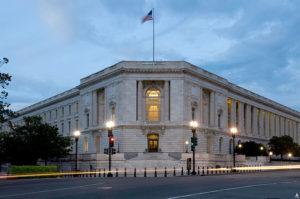
“Gee, what a terrific party. Later on we’ll get some fluid and embalm each other.”
— Neil Simon
A broad swath of America rose in somber ovation when he exited stage right. Heavy hearts melded in more than ritual patriotism. The senator’s death became the grounding rod for a storm of grief over our loss of a more perfect union. Mourners cast him as the knight of elder statesmanship, of civility in service to God and country, a disrupter of partisan discord for the greater good.
It’s natural to yearn for heroes at this juncture in our nation’s history. We desperately need leaders who will combat the dark reach of divide-and-conquer oligarchs, foreign and domestic. Public tributes cast him as one of our foremost defenders of democratic values. In death he became bigger than life, a champion for our collective conscience. Apparently many of his peers think a bright memorial spotlight can repel corrupting night-bugs from our body politic.
Death brings out the best in us, and it stirs up other stuff too. Soon after the man took his last breath detractors pounced on social media to call out his sins and renounce public expressions of sorrow. Hymns of heroism were countered with shouts of villainy. “Fuck John McCain,” posted one indignant Facebooker. “I don’t mourn his death…I mourn his life,” posted another. Bits of heaven and hell blow inside most of us, dancing on the cross-winds of mercy and justice.
The politician’s legacy is especially conflicted for indigenous Americans, oft savaged by our government. He was the longest-serving member of the Senate Indian Affairs Committee, twice officiating as its chairman. Native journalist Mark Trahant offers an even-handed assessment of McCain using the concept of duality – the simultaneous acceptance of two opposing ideas.
“He is remembered as a patriot and a hero by many in Indian Country. Indeed, the list of his legislative accomplishments is long. Others say “no,” he forfeited being a hero when he inserted language into a defense bill to give sacred Apache land to a mining company.”
Herein lies a pitfall of U.S. politics. On one hand we affirm that all people are created equal, pledging fidelity to life, liberty, and the pursuit of happiness. On the other, many measure power by the amassment of corporate wealth and the spreading conquest of unregulated commerce. When outspoken people convince us they can hold these things together, we crown them politicians. Yet their duality essentially translates as duplicity over time, paving the way for professional liars. As a result, natural resources and cultural capacity become depleted in ways that threaten our well-being.
Incremental improvements can occur, in spite of this descent. Life by lionized life our republic can become more democratic, less bound to the takings of authoritarians. So politicians tell us on special occasions. As a final flourish of their funerary rites, Democrats want to impart the name of McCain to the oldest of three senate office buildings in Washington. Doing so would replace the name of Russell, which was bestowed upon the edifice in 1972 to honor a Georgia senator who was chief sponsor of the National School Lunch Act, among other feats of heroism, as well a staunch advocate for racial segregation.
For most Democrats the name-change would be a welcome shedding of pre-civil-rights skin. Yet the proposal is being blocked by Republicans who for decades have embraced Dixiecrats like Russell as part of their core constituency.
“Richard Russell was an icon,” said Sen. Richard C. Shelby (R-Alabama). “You go back to George Washington, Thomas Jefferson, just about anyone, nobody’s perfect.”
That’s a well-worn qualifier that politicians use when eulogizing peers. Nobody’s perfect, it’s true. Yet why should we be so quick to gloss over gaping imperfections in those who hold high office? It’s one thing to honor leaders who navigate the swamp by celebrating their moments of firm footing. Quite another to glorify membership in a political class that frequently covers decency with muck.
A dose of humility is overdo. Politicians are too often pedestalized. Their lives are seldom moral fables to paint on public ceilings, but reminders of trade-offs made on the floors of a fallen world. Given his capacity to recognize shortcomings, John McCain would want us to learn from this truth.
Maybe some folks stick around in the here after to help reverse bad decisions they made in life. I like to imagine deceased people of all persuasions making amends behind the scenes, nudging America a little closer to heaven on earth. McCain could work to repair relations with indigenous communities, kicking society’s habit of defiling sacred places. He could also team up with Richard Russell to combat racism.
No one can prove that such help doesn’t come from beyond the grave, even from those who aren’t saints. Senators could signal this effort by re-christening an office building. They should think outside the box, look beyond the political club for a namesake. Why not name it the Franklin Senate Office Building? No person is more worthy of re-centering our nation’s soul. What a great way to honor Aretha Franklin.
Leave a Reply